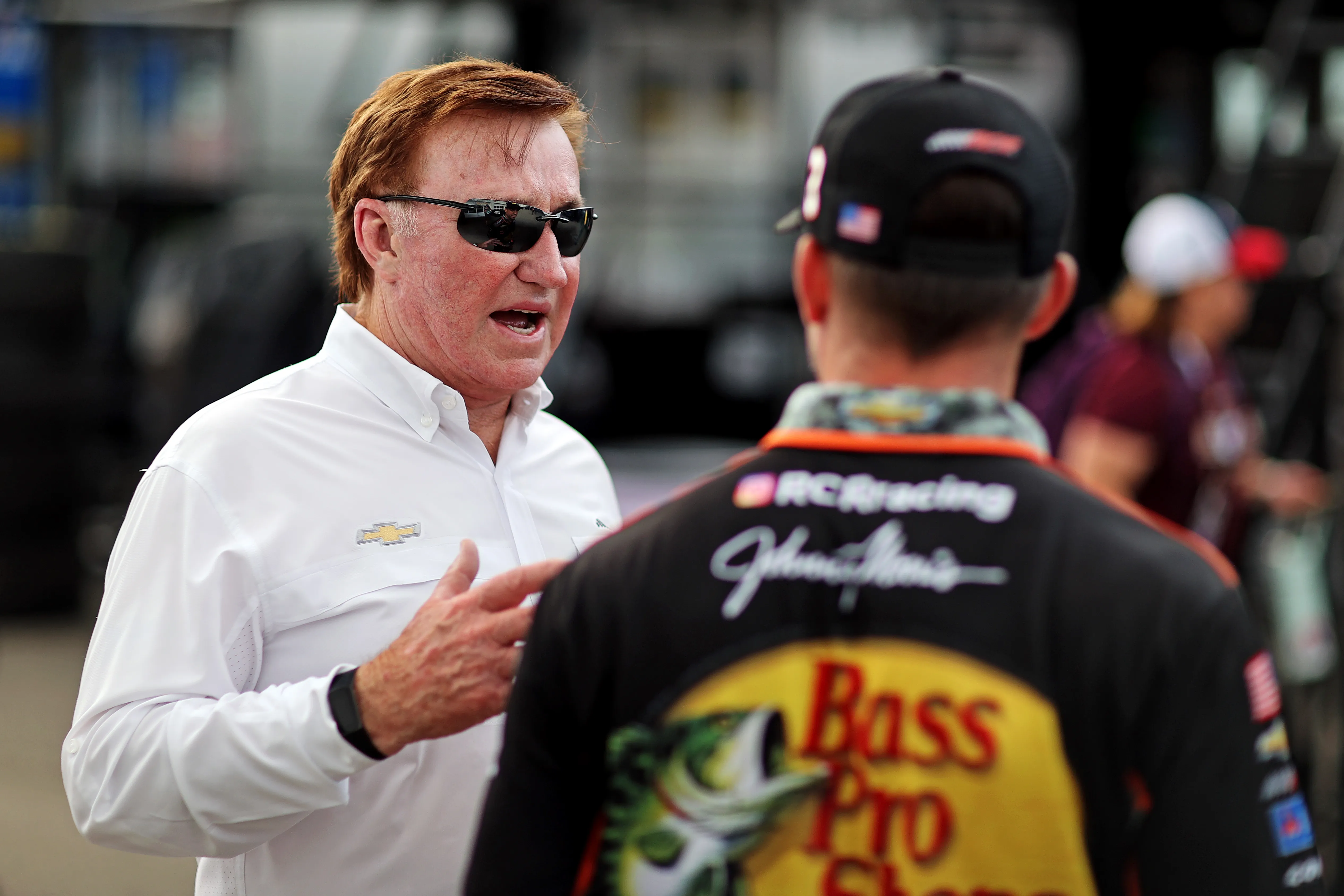As part of its lawsuit against NASCAR, 23XI Racing and Front Row Motorsports allege that the Sanctioning Body issued a take it or leave it final revenue sharing and governance (charter) extension offer, one that has been articulated privately, as coercion.
The 13 other teams signed the document, with the two teams that are suing the sanctioning body, choosing not to. This was the culmination of two years of negotiating between NASCAR and the teams that compete at the highest level.
Publicly, many of the team owners shied away from making a statement that they felt forced in any way but Richard Childress told FOX Sports on Saturday at Talladega, that he felt like he had no choice in protecting his business.
“We’ve read it all, I can’t comment a whole lot now, because I know the attorneys are handling a lot of that,” Childress said. “But I will say the part about, we got our DocuSign that evening at 6:37 PM ET is when it came in, and we had to sign it by 12 AM ET or we’d lose our charters. I didn’t have a choice because we had to sign. I have over 400 employees, OEM in contracts, contracts with sponsors, and I have to take care of my team.”
Is Childress ‘happy’ with the deal he signed or is he willing to go back on the signature and join the two holdouts in their suit?
“…I don’t know how you phrase happy on this,” Childress explained. “I would just say that I don’t think we can join, I don’t know. It’s way too early to talk about the legal stuff. NASCAR hasn’t even come back with an answer, I’m sure they’re looking at antitrust attorneys. I know they are. And we’ll go from there.”
Childress also expressed a conviction that should 23XI Racing and Front Row secure a better deal through litigation, that it would also be awarded to all the teams, even those that didn’t join in the lawsuit.
“I think it will by the law, but the way we don’t have a favored nation in our Charter which is not fair to me, anyway. Because everybody should be treated equal[ly],” Childress stated. “How do I know they’re not going to give someone a bigger restrictor plate, or how would I know they’re not going to pay someone $20 million more than me? We don’t know without a favored Nation.”
A Most Favored Nation clause in a contract gives a party to the contract the legal right to terms and benefits under the contract that are as good as or more favorable than the terms and benefits received by anyone else who enters into a similar contract with the other party.
Part of the case 23XI and Front Row’s lawyer, Jeffrey Kessler, will try to argue is that NASCAR acted in a monopolistic manner by strong arming teams to sign an unfavorable agreement because there was no competition in the market for them to pursue otherwise.
That Childress went on the record to make that point will likely make its way into any potential case argument as well.
Matt Weaver is a Motorsports Insider for Sportsnaut. Follow him on Twitter.

